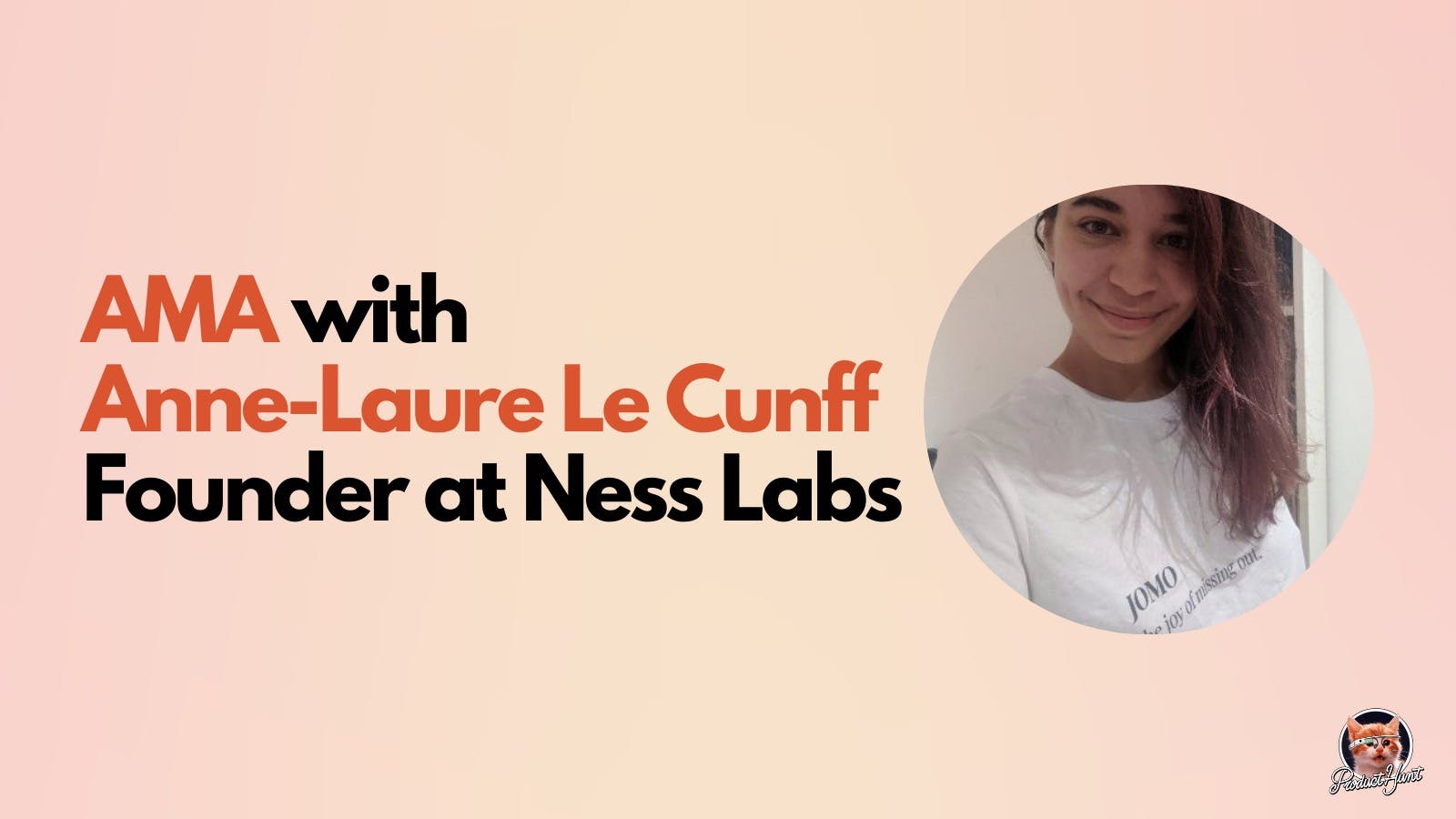Anne-Laure Le Cunff left her job at Google to "start her own thing," which including building products and writing content that would help makers be happier and healthier while getting things done. That led her to launching her own newsletter, and Ness Labs, a platform to help knowledge workers achieve more without sacrificing their mental health.
"Our weekly newsletter is read by 35,000 subscribers, and we have around 100,000 people visiting our website each month. We monetize these through sponsored interviews with founders of tools for thought. Past sponsors include Notion, Obsidian, and MindMeister. We also run a paid community for knowledge workers with 2,500 members," she explained.
Anne-Laure is also a PhD researcher at King's College London where she explores the neuroscience of education with a focus on neurodiversity in online learning.
She joined us for an Ask Me Anything discussion earlier this year. Here are 6 lessons we took from her answers.
On content creation:
1. Explore loosely related topics, or two different ones to create a niche.
If you want to build a business, I think you can either:
(1) explore as many topics as you want as long as they are loosely related. For instance, with Ness Labs, I explore topics across education, mental health, productivity, creativity, and more;
(2) explore two very different topics and create your own unique niche. For instance, "mindful productivity" is at the intersection of mindfulness and productivity. Another example: you could create a website that explores knitting and mental health.
If you have lots of different topics that have nothing to do with each other, it may be better to write about these on your personal blog as it will be hard to build a brand and articulate the value of your content to potential readers.
2. Maintain a curated list of the topics that inspire you.
It's not a very structured process, but I basically take notes all the time and maintain a list of topics I find interesting and would love to write about in the future. I never feel like I have zero potential topics to write about, it's more a matter of selecting something from my ever-growing list, and the selection is mostly driven by inspiration.
Sometimes I feel like exploring a complex topic I don't know much about. Sometimes I read a book about something that I now understand pretty well, and I feel excited to share that newly acquired knowledge with Ness Labs readers. And sometimes I'm feeling pretty lazy so I pick something helpful that I'm very comfortable with, so I know it's not going to take too long to write but will still deliver value to our readers!
3. Create a goal to achieve consistency, and share regularly.
I think [to say I had a] "strategy" would be an overstatement, but I did try to be systematic and consistent in the way I created and promoted content.
When I launched the newsletter, I committed to writing 5 articles a week until I reached 100 articles. I'm a bit fan of learning in public, so I documented the process on Twitter and shared each article on HackerNews. Some articles went semi-viral, which immensely helped in growing the newsletter, but I think most people joined because they enjoyed following my journey.
4. Collect readers that can validate your big launch.
I think 1K subscribers [before you launch] is a good number. That would allow you to benefit from a snowball effect and make the most of a launch on Product Hunt.
That's because (1) even though people on Product Hunt tend to be early adopters, it's much easier to sign up for something that feels validated; (2) you'd have enough readers to collect some great testimonials; (3) your existing readers can support your launch and even help answer questions in the comments section.
On building community
5. Define your goals, find your tribe, and contribute to it.
[To get started on building a community], I'd start by defining your goals. What do you want to achieve? Do you want to learn from other people, promote your work, establish your expertise - or maybe a mix?
Then, I'd try to figure out who "your people" are – in my case, it's knowledge workers who are prone to burning out. It means they are a bit geeky, curious, love trying new things, and also ambitious, driven, and could definitely benefit from taking care of their mental health. What about your tribe?
Finally, you just need to consistently engage with your people :) Contribute helpful thoughts under their tweets, re-share anything interesting they have posted, and add to the intellectual wealth of your tribe by sharing your own thoughts, asking questions, etc. Do this for long enough and you'll have more than an audience: you'll have a tribe.
6. For a supportive community, attract individuals who find joy in helping others
I'm a bit biased, because the Ness Labs community is genuinely one of the kindest, most generous ones I have ever had the chance to be a part of. This is probably due to the topics we explore together, such as mental health, mindfulness, creativity, etc. I think the two key ways to build a community that supports each other are (1) attracting members that feel joy when helping other people; (2) actively highlighting the benefits of contributing to the community.
